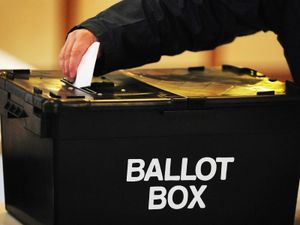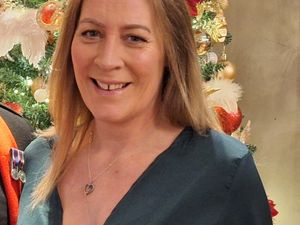Stoke Heath prisoner dies at Telford hospital after handcuff key blunder
A prisoner dying of a heart attack could not be saved with a defibrillator because the key to his handcuffs had gone missing, an inquest heard.
Electric shock treatment could not be given for fear of harming the prison officer he was attached to.
Richard Grindon, 52, an inmate at HMP Stoke Heath, was rushed to Telford's Princess Royal Hospital with chest pains.
But once there, medics said they could not use a defibrillator while he was handcuffed to his prison escort.
Another prison guard, who held the key for the handcuffs, had gone off to buy drinks for himself and his colleague.
Mr Grindon had previously complained of chest pains to his cell mate but thought it was just indigestion, a jury inquest taking place at Shrewsbury's Shirehall heard.
But on October 4 2015 he visited the prison's health care unit where he underwent a series of tests.
Nurses at the unit were so concerned that an ambulance was called to take Mr Grindon to hospital from the jail near Market Drayton.
He went under escort and was handcuffed to a prison officer while another acted as key holder.
On arrival, Mr Grindon was taken to a cubicle and the officer holding the keys went to get a drink.
But while he was away Mr Grindon suffered a heart attack and the CPR he needed was held up while the key to the handcuffs was located.
The blunder delayed treatment by nine minutes, the inquest was told.
Dr Abdallah Al-Mohammed, consultant cardiologist, told the jury that the chances of Mr Grindon's survival diminished from 50 per cent to 30 per cent by the time lost.
He said: “Had a defibrillator been used there was a 45-50 per cent chance of survival. Nine minutes later this had fallen to between 27 and 36 per cent.
“He required three shocks before he went in to a cardiac rhythm and he then had adrenaline and then had a fourth shock. This suggests he was in a bad way.”
Prison officer Mark Gloster told the jury that when he came back from the coffee machine he found that his colleague Nick Moss and Mr Grindon had gone.
He said: “I went to x-ray but couldn't find them there and, as I came back to the cubicle, a nurse shouted at me 'You are needed in resus now'.”
Prison governor Nigel Robb explained he had been responsible for the ultimate decision to cuff Mr Grindon when he went to hospital.
“Mr Grindon was not in any form of distress. If he had been we could have removed the cuffs at any time,” said Mr Robb.
He explained how it was procedure for a prisoner to be cuffed to one officer and the key for the cuffs to be looked after by a colleague. The inquest heard that the policy had changed in the light of at least two deaths while prisoners were cuffed to their escorts.
In March 2016 the National Offender Management Service recommended that if a key holder needs to leave the prisoner to make a phone call or to take a comfort break they should covertly pass the key to the other member of staff.
The inquest continues.





